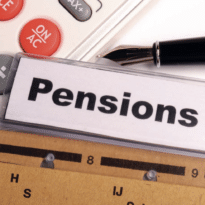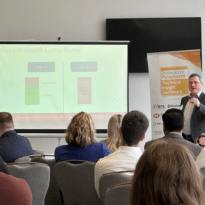Whether you are preparing for your exams, or simply want to keep your knowledge up-to-date, Professional Paraplanner’s Development Zone can help.
Every month, in conjunction with Brand Financial Training, we provide a series of questions from across the syllabus which aim to test your knowledge of the financial services market, as part of your overall self development training goals and exam techniques.
The following questions relate to examinable Tax year 23/24, examinable by the CII until 31 August 2024.
You will find the answers separately under the Development Zone tab on the Professional Paraplanner website.
QUESTIONS
1. Who should own the overall conflict policy within a firm?
A. Every individual within the firm is responsible for owning the conflict policy.
B. The overall conflict policy should be owned by a member of the board or senior anagement.
C. Ownership of conflict will be on a case-by-case basis therefore no-one would have overall ownership of the conflict policy.
D. Ownership of the overall conflict policy varies according to the type of conflict being reported.
2. The accounts of a public limited company show fixed assets of £8,450, current assets of £2,300, current liabilities of £1,875 and long-term debt of £1,950. If they have 1,250 ordinary shares in issue, their net asset value per share is
A. £2.66
B. £5.54
C. £1.86
D. £6.34
3. Edward is a company director and is considering the best way of taking remuneration from his company. What might be a disadvantage for him of taking a low salary and high dividends?
A. Dividends are not relevant earnings and so could restrict pension contributions.
B. Corporation tax would be payable at a higher rate as the salary is not being withdrawn from company profits.
C. A reduced salary would reduce any State pension entitlement in the future.
D. The dividend payment would be subject to a higher rate of National Insurance.
4. The Pension Ombudsman would be expected to investigate problems concerning
A. the sale of a Stakeholder pension.
B. the amount payable under the State pension.
C. the appropriateness of a new Trustee to a company pension scheme.
D. the marketing of a Self-invested personal pension plan.
5. Daniel’s company provides income protection for him, and they pay the premiums.
For how long will the benefits usually be paid if he becomes ill?
A. A maximum period of 2 years.
B. To the earliest of his recovery, leaving service or normal retirement date.
C. For a period chosen by the company.
D. For a period of between 2 and 6 years depending on the nature of Daniel’s incapacity.
6. Which of the following investments is most likely to be adversely affected by credit risk?
A. Buy-to-let property.
B. Corporate bonds.
C. Preference shares.
D. Ordinary shares.
7. Best execution for a retail client is judged by
A. the price and costs.
B. the price and speed.
C. the costs and likelihood of execution.
D. likelihood of execution and settlement.
8. The provision of domiciliary long-term care is normally the responsibility of
A. the Local Authority.
B. National Health Service.
C. Court of Protection.
D. registered charities.
9. Which of the following is a feature relating to the lump sum Bereavement Support Payment?
A. The lump sum will be paid over 18 months.
B. Claimant must have children under 19.
C. The payment will be retained on re-marriage.
D. Claimant must be actively looking for work.
10. Paula has recently inherited her beloved grandmother’s cottage by the sea. As Paula works full time, she is considering renting it out to holidaymakers during high season. To qualify as a holiday home under HMRC rules, Paula must ensure that the property is?
A. Located in the EU.
B. Unfurnished.
C. Available to the general public for at least 210 days in the year.
D. Let for at least 31 days on a commercial basis.






























